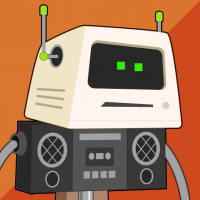Best way to learn a little bit of everything for my new job?
Hi guys,
So, I got a new job. Currently I'm doing a lot of the Support/Jr. System Administration at my current job. At my new job, I'll be touching everything.
1. Linux
2. AWS
3. Windows workstations/Servers
4. Macs
5. Networking
Currently, I only do the support/server stuff. My networking, Mac, and Linux experience isn't great at all. My question is, what are the best steps to get up to par with all of this? Obviously it won't happen overnight, but it's a bit scary.
So, I got a new job. Currently I'm doing a lot of the Support/Jr. System Administration at my current job. At my new job, I'll be touching everything.
1. Linux
2. AWS
3. Windows workstations/Servers
4. Macs
5. Networking
Currently, I only do the support/server stuff. My networking, Mac, and Linux experience isn't great at all. My question is, what are the best steps to get up to par with all of this? Obviously it won't happen overnight, but it's a bit scary.
Comments
-
 Russell77
Member Posts: 161
The way I do it is to take my problem home with me. If tasked with helping out with a networking issue then when you go home at night study the portion of networking that relates to the issue. Networking is a big subject but within each organization they are only using a part of it. Bit by bit you will build the knowledge that is important to your employer.
Russell77
Member Posts: 161
The way I do it is to take my problem home with me. If tasked with helping out with a networking issue then when you go home at night study the portion of networking that relates to the issue. Networking is a big subject but within each organization they are only using a part of it. Bit by bit you will build the knowledge that is important to your employer. -
 2015
Member Posts: 11 ■□□□□□□□□□
Document everything you touch, seriously. In a very short term, you'll be trained on the essentials and have notes to refer back to. Your knowledge manual will grow very fast.
2015
Member Posts: 11 ■□□□□□□□□□
Document everything you touch, seriously. In a very short term, you'll be trained on the essentials and have notes to refer back to. Your knowledge manual will grow very fast. -
 ypark
Member Posts: 120 ■■■□□□□□□□
If you show that you are interested in learning, most other coworkers will be willing to teach you what they know. I sit next to a network guy and he always shows me how to troubleshoot the basic networking issues. He knows I'm always interested and I know he's very willing to teach me. So it works out.
ypark
Member Posts: 120 ■■■□□□□□□□
If you show that you are interested in learning, most other coworkers will be willing to teach you what they know. I sit next to a network guy and he always shows me how to troubleshoot the basic networking issues. He knows I'm always interested and I know he's very willing to teach me. So it works out.
Also, always dig a bit deeper than what is necessary to solve the problem at hand. That way, you get a better understanding of the issue and know enough to troubleshoot something that is similar next time.
Documenting everything is a very good idea as well, especially when you are just starting out. You will be taught many things and you will forget most until you get to do them hands on.
Congrats on your new job!2022 Goals: [PCNSE] [JNCIS-SP] [JNCIS-SEC] [JNCIS-DevOps] -
 aderon
Member Posts: 404 ■■■■□□□□□□
The Linux Command Line: A Complete Introduction by William E. Shotts Jr. is a really good introductory Linux book. It's a quick read, written in plain english, and will get you pretty comfortable with working and scripting in Linux.2019 Certification/Degree Goals: AWS CSA Renewal (In Progress), M.S. Cybersecurity (In Progress), CCNA R&S Renewal (Not Started)
aderon
Member Posts: 404 ■■■■□□□□□□
The Linux Command Line: A Complete Introduction by William E. Shotts Jr. is a really good introductory Linux book. It's a quick read, written in plain english, and will get you pretty comfortable with working and scripting in Linux.2019 Certification/Degree Goals: AWS CSA Renewal (In Progress), M.S. Cybersecurity (In Progress), CCNA R&S Renewal (Not Started)

